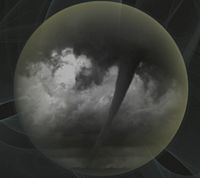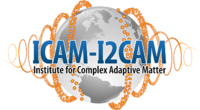PHZ3400: Phenomena in Condensed Matter - Spring 2011

Class Information
- Lectures: M W F 12:20-1:10pm; HCB 317
- Professor: Vladimir Dobrosavljevic, 611 Keen Building or A315 MagLab, 644-9755 or 644-5693, vlad@magnet.fsu.edu
- Office hours: Friday 11-12am, or by appointment. You are also welcome to contact me whenever you have questions.
- Prerequisite: Calculus-based General Physics (PHY 2048 and 2049), and Modern Physics (PHY3101).
Description
This is an upper-level undergraduate course, with the goal to explain the concepts of modern Condensed Matter Physics. In this class, special emphasis will be put on the concept of "Emergence" - the idea that systems consisting of many particles display fundamentally new phenomena, not found on the microscopic level. Examples of Emergence surround us on every step, but it is only recently that this important concept has started to be appreciated by the public at large. Serious efforts to disseminate these important ideas is being spearheaded - as we speak - by ICAM (Institute for Complex Adaptive Matter), a multi-institutional organization spanning five continents. The instructor for this class is the FSU representative at ICAM.
The key component of this course is the collaborative student contribution to the course Wiki-textbook. Each team of students is responsible for BOTH writing the assigned chapter AND editing chapters of others. Instead of writing traditional-style term papers, students will produce Wiki-contributions to various special topics, and then use these pages to present what they discovered to the class. Cross-linking these pages with the exponentially growing number of resources on the Web will produce a new generation of learning tools: a veritable revolution in teaching physics and science in general.
Textbooks
- Main texts:
- Soft Condensed Matter, by Richard A. L. Jones (Oxford University Press, 2007).
- Solid State Physics, by J. R. Hook and H. E. Hall (Wiley, 2007).
- Other useful texts:
- Principles of Condensed Matter Physics, by P. M. Chaikin, and T. C. Lubensky (Cambridge University Press, 2000).
- Solid State Physics, by N. W. Mermin and N. D. Ashcroft (Holt, Rinegart and Winston).
- Introduction to Solid State Physics, by C. Kittel (Wiley).
Class Materials
- Lecture Notes (Wiki-written by students!))
- Weekly Homework Assignments and Solutions (also by students!)
- Presentation Slides (with pretty pictures)


